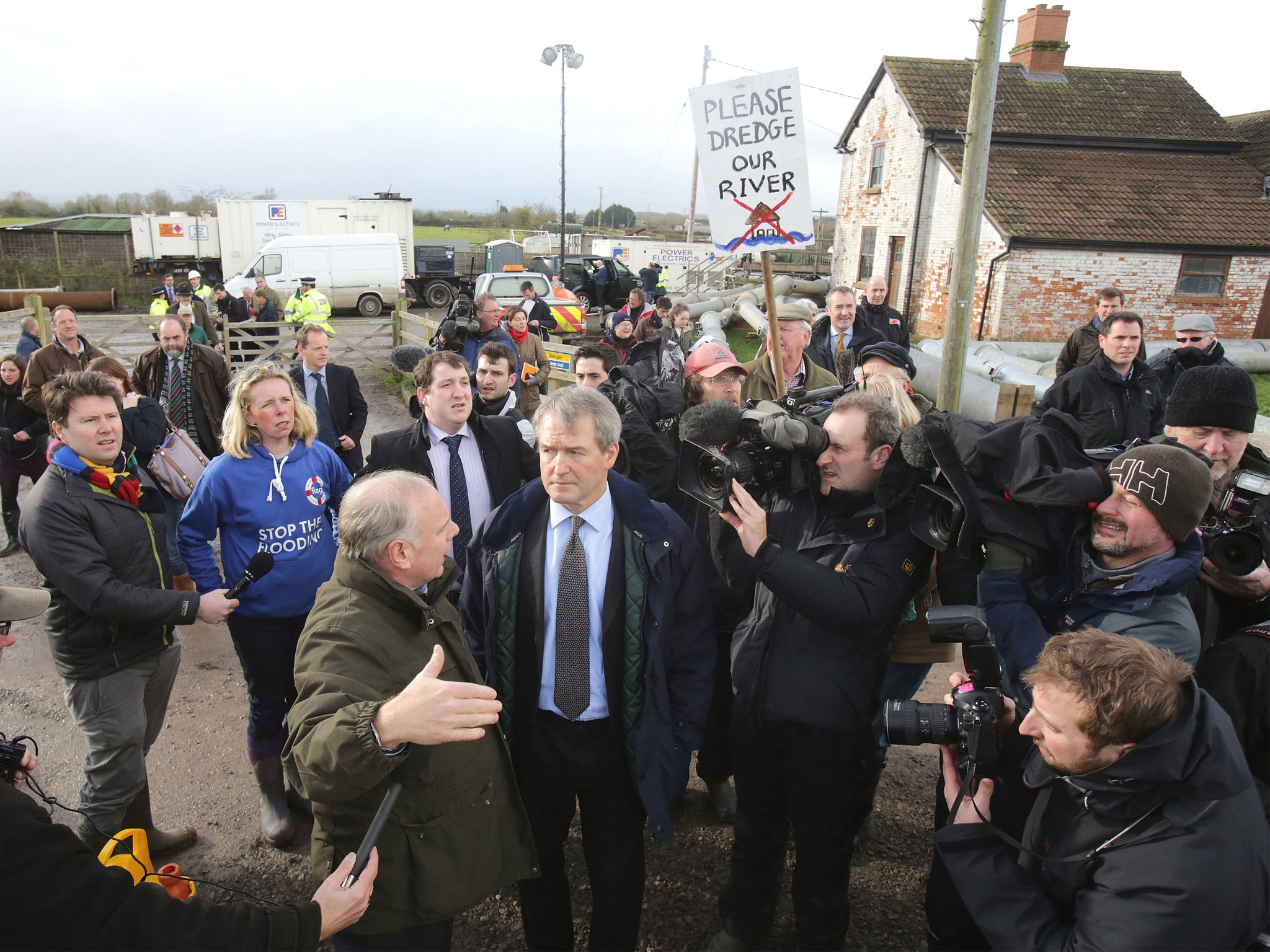David Cameron overrules Environment Secretary Owen Paterson to order urgent dredging in Somerset to combat the flooding
Prime Minister also pledged to spend an extra £100m on flood defences

David Cameron ordered the Environment Agency to abandon its opposition to river dredging as he pledged an extra £100m for flood defences this year.
In an attempt to stamp his authority on the crisis, the Prime Minister took over from the Environment Secretary, Owen Paterson, at the helm of the Cobra emergency flood committee.
Mr Paterson was due to resume his chairmanship of the committee today after facing heavy criticism for his handling of the emergency. But it was announced that he would be absent to due to emergency eye surgery for a detached retina.
Downing Street said Mr Paterson was expected to be off “for a few days” and the Communities Secretary Eric Pickles will now be “in charge” of the Government’s flood response with Mr Cameron remaining “very closely involved”.
Before the developments, the Prime Minister’s official spokesman insisted Mr Paterson was doing an “excellent job” and that Mr Cameron was taking personal charge of Cobra because the storms had inflicted damage and caused disruption affecting several government departments, as the Somerset Levels remain underwater after more than a month.
The situation in the South-west worsened after storms caused a section of sea wall in Dawlish, Devon, to collapse, leaving the railway to Cornwall hanging in mid-air. Rail service west of Exeter is likely to face weeks of disruption.
Speaking at Prime Minister’s Questions, Mr Cameron pledged to do “whatever is required” to help homes and businesses get back on their feet. He announced an extra £100m for repairs and essential maintenance of flood defences over the next year.
The Prime Minister hit out at the Environment Agency – and its chairman, Lord Smith – arguing that a “new approach” was needed to deal with flooding. He said: “From the late 1990s – far too long – the Environment Agency believed that it was wrong to dredge. Those of us with rural constituencies affected by flooding have seen the effectiveness of some dredging.
“Now if it is good for some places, we need to make the argument that it would be good for many more places. I have said that we are going to see dredging on the [rivers] Tone and the Parrett in the Somerset Levels because that would make a difference. But I believe it is time for Natural England, the Environment Agency and the departments to sit round the table and work out a new approach that will make sure that something that did work, frankly, for centuries is reintroduced.”
The Prime Minister’s promise to step up dredging comes after both Mr Paterson and Lord Smith played down its effectiveness. Lord Smith has said dredging “would not have solved the problems we are facing” and would make only a “small difference”.
Many experts also believe dredging makes little difference. This is because the process –which seeks to speed a river’s flow by deepening or widening its banks – can increase erosion and siltation by removing bank vegetation.
It is also an expensive remedy because dredging must be repeated after every major flood as the river silts up.v
Join our commenting forum
Join thought-provoking conversations, follow other Independent readers and see their replies
Comments
Bookmark popover
Removed from bookmarks